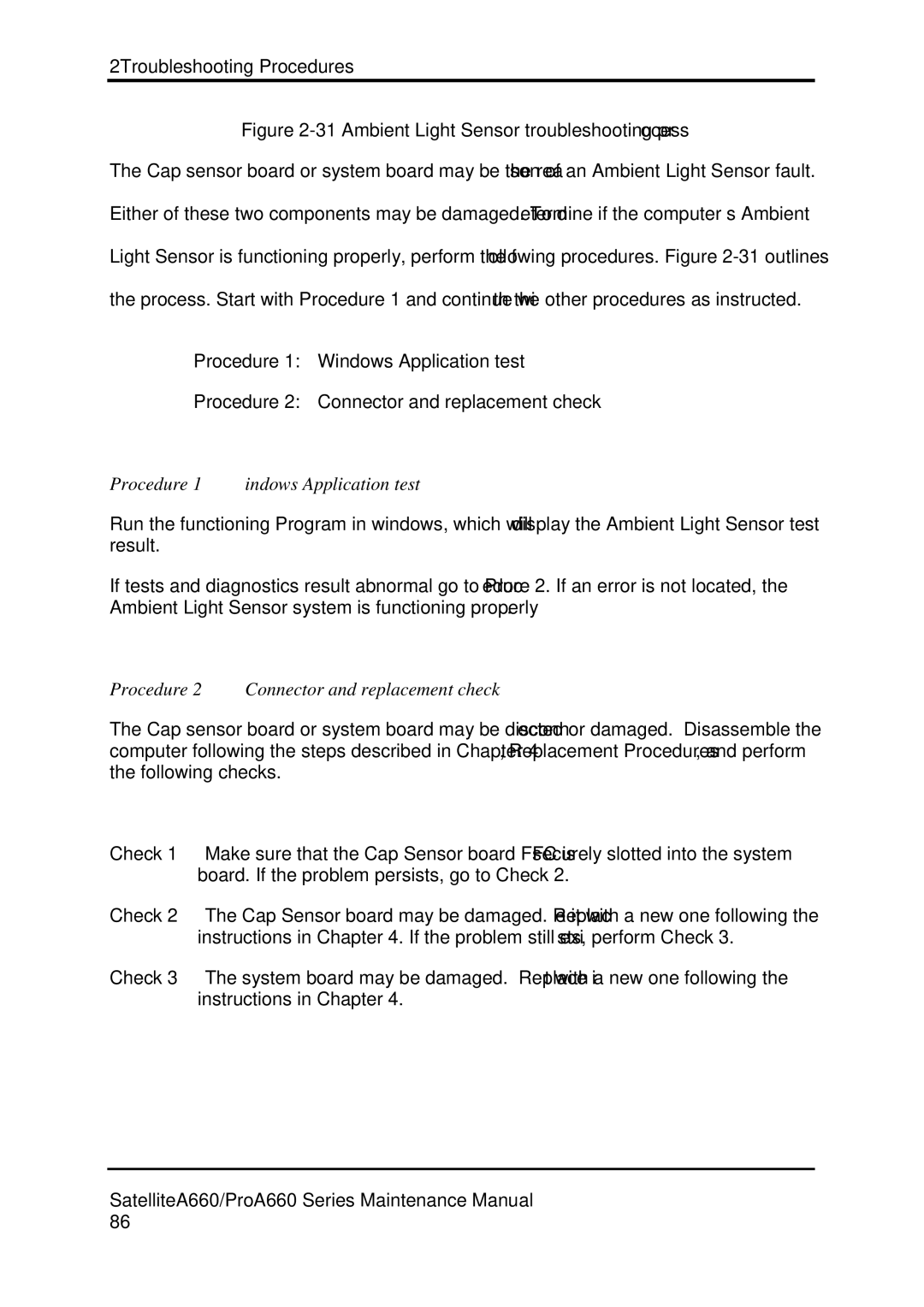
2Troubleshooting Procedures
Figure 2-31 Ambient Light Sensor troubleshooting process
The Cap sensor board or system board may be the reason of an Ambient Light Sensor fault.
Either of these two components may be damaged. To determine if the computer’s Ambient
Light Sensor is functioning properly, perform the following procedures. Figure
the process. Start with Procedure 1 and continue with the other procedures as instructed.
Procedure 1: Windows Application test
Procedure 2: Connector and replacement check
Procedure 1 Windows Application test
Run the functioning Program in windows, which will display the Ambient Light Sensor test result.
If tests and diagnostics result abnormal go to Procedure 2. If an error is not located, the Ambient Light Sensor system is functioning properly.
Procedure 2 Connector and replacement check
The Cap sensor board or system board may be disconnected or damaged. Disassemble the computer following the steps described in Chapter 4, Replacement Procedures, and perform the following checks.
Check 1 Make sure that the Cap Sensor board FFC is securely slotted into the system board. If the problem persists, go to Check 2.
Check 2 The Cap Sensor board may be damaged. Replace it with a new one following the
instructions in Chapter 4. If the problem still exists, perform Check 3.
Check 3 The system board may be damaged. Replace it with a new one following the instructions in Chapter 4.
SatelliteA660/ProA660 Series Maintenance Manual 86
